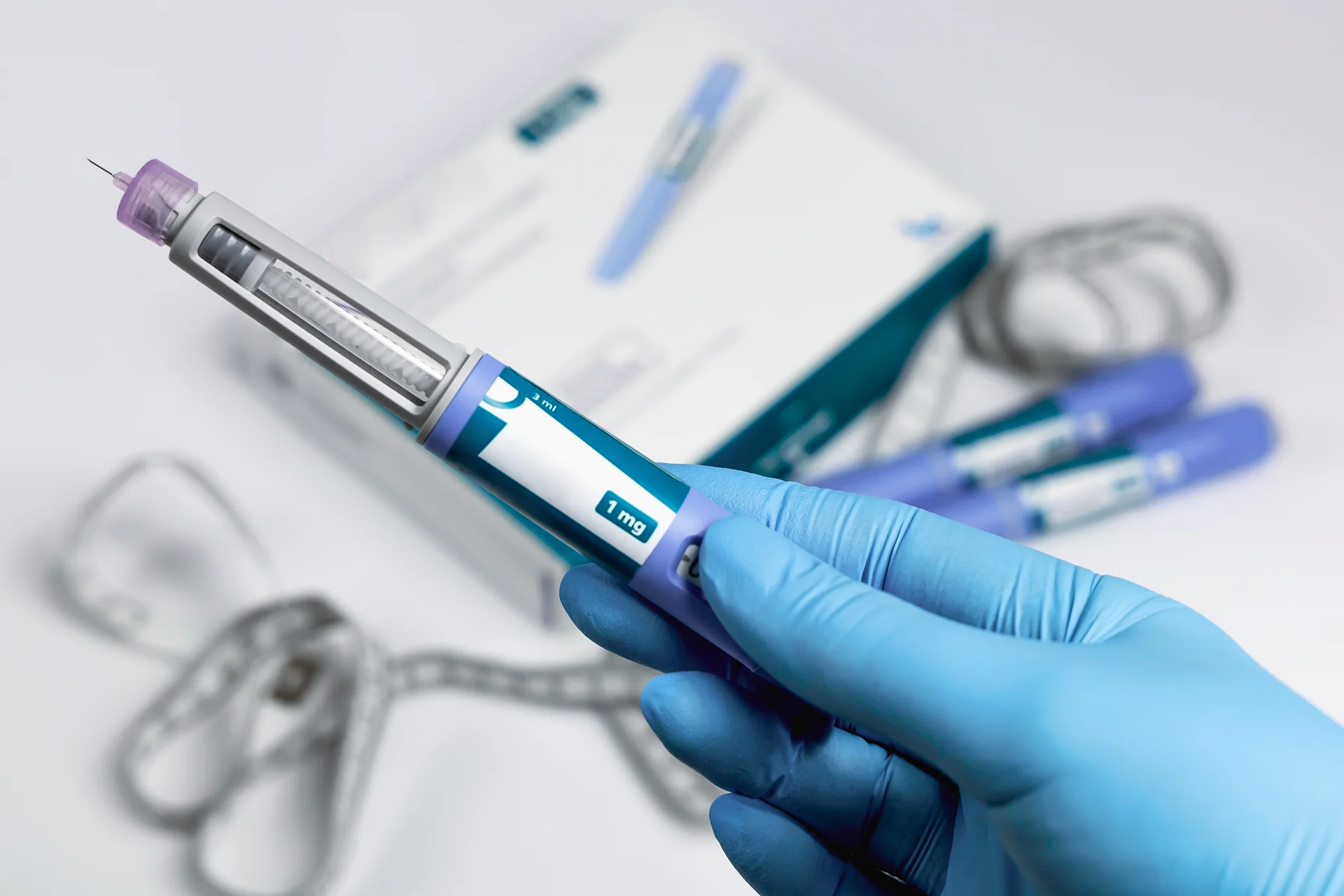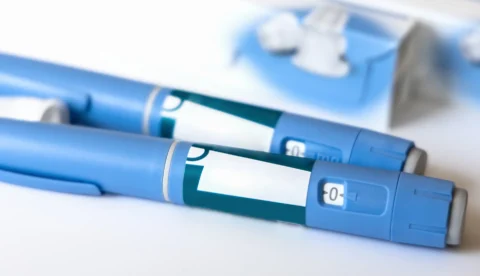Discover the pros and cons of semaglutide tablets and injections to make an informed decision on your weight loss journey.
Semaglutide, a glucagon-like peptide-1 (GLP-1) receptor agonist, has emerged as a promising medication for weight loss, available in both tablet and injection forms.
As the popularity of semaglutide grows, many are curious about the differences between these two formulations and which one may be best suited for their weight loss journey.
Is semaglutide injection more effective than tablets?

Studies comparing the weight loss results between semaglutide injections and tablets have shown some differences in efficacy.
In the STEP 1 trial, participants using once-weekly semaglutide 2.4 mg injections achieved an average weight loss of 14.9% over 68 weeks, while in the STEP 2 trial, those using once-daily semaglutide 14 mg tablets lost an average of 9.6% over 68 weeks.
Semaglutide injections have been shown to have better bioavailability than tablets, which could potentially lead to greater weight loss.
However, it’s important to note that these were separate trials with different patient populations, so direct comparisons should be made with caution. Factors such as medication adherence and absorption may impact the effectiveness of each form.
Ultimately, both forms of semaglutide have demonstrated clinically significant weight loss results, with a high proportion of patients achieving ≥5% weight loss (77% with injections and 69% with tablets) and ≥10% weight loss (63% with injections and 41% with tablets).
Semaglutide tablets vs injection for weight loss
Semaglutide tablets and injections work in similar ways to promote weight loss, but there are some key differences in their mechanism of action and administration.
Semaglutide tablets (Rybelsus) are taken orally once daily, at least 30 minutes before your first food, beverage, or other medications. The tablets are absorbed through the stomach and intestines, mimicking the action of the naturally occurring hormone GLP-1.
On the other hand, semaglutide injections (Ozempic, Wegovy) are administered subcutaneously (under the skin) once weekly. The injectable form of semaglutide directly enters the bloodstream, allowing for a more potent and prolonged action compared to the tablets.
Pros of semaglutide tablets:
| Pros | Cons |
| Convenient oral administrationNo need for injections or needle-related anxietyMay be preferred by individuals who have difficulty with injections | Requires adherence to strict timing of administration (30 minutes before eating or drinking)May have lower bioavailability compared to injectionsPotential for gastrointestinal side effects |
Pros of semaglutide injections:
| Pros | Cons |
| Once-weekly administration, which may be more convenient for some individualsPotentially higher efficacy compared to tabletsMore consistent absorption and bioavailability | Requires self-injection or administration by a healthcare providerMay cause injection site reactions or discomfortNeedle-related anxiety for some individuals |
When choosing between semaglutide tablets and injections, consider your personal preferences, lifestyle, and any needle-related concerns.
Semaglutide dosage for weight loss (tablets vs injection)

The recommended dosages for semaglutide tablets and injections differ, as do their titration schedules and maintenance doses.
Semaglutide tablets (e.g. Rybelsus):
- Starting dose: 3 mg once daily for 30 days
- First dose escalation: 7 mg once daily for 30 days
- Maintenance dose: 14 mg once daily
Semaglutide injections (e.g. Wegovy):
- Starting dose: 0.25 mg once weekly for 4 weeks
- First dose escalation: 0.5 mg once weekly for 4 weeks
- Second dose escalation: 1 mg once weekly for 4 weeks
- Third dose escalation: 1.7 mg once weekly for 4 weeks
- Maintenance dose: 2.4 mg once weekly
The gradual dose escalation for both tablets and injections helps minimize gastrointestinal side effects and allows your body to adapt to the medication. It’s crucial to follow your prescribed dosage schedule and not to increase or decrease your dose without consulting your healthcare provider.
Adhering to the recommended dosages and administration schedule is essential for achieving optimal weight loss results with semaglutide.
Semaglutide cost: tablets vs injections
The cost of semaglutide tablets and injections can vary depending on several factors, including your location, insurance coverage, and the specific brand prescribed.
Semaglutide tablets (Rybelsus) may have a lower out-of-pocket cost compared to injections, as they are often covered by insurance plans with a lower copay or coinsurance. However, the long-term cost of semaglutide tablets may be higher due to the need for daily administration and ongoing prescription refills.
Semaglutide injections (Ozempic, Wegovy) may have a higher upfront cost, as they are typically more expensive per dose than the tablets. However, the long-term cost of injections may be lower due to less frequent administration (once weekly) and potentially greater efficacy, which could lead to more sustained weight loss and reduced healthcare expenses related to obesity-associated conditions.
To manage the cost of semaglutide treatment for weight loss, consider the following tips:
- Check with your insurance provider to understand your coverage and out-of-pocket expenses for semaglutide tablets or injections.
- Look for manufacturer discount programs or copay assistance cards that may help reduce your out-of-pocket costs.
- Discuss alternative treatment options or generic medications with your healthcare provider if the cost of semaglutide is a significant barrier.
- Prioritize lifestyle changes, such as a balanced diet and regular exercise, to support your weight loss journey and potentially reduce your reliance on medication over time.
Remember, the most cost-effective approach to weight loss is one that you can sustain long-term and that aligns with your individual needs and preferences.
So, what is the best semaglutide form for your weight loss journey?

Choosing the best form of semaglutide for weight loss depends on several individual factors and preferences.
Factors to consider when deciding between semaglutide tablets and injections include:
- Efficacy: While both forms of semaglutide are effective for weight loss, injections may lead to slightly greater weight loss compared to tablets.
- Convenience: Semaglutide tablets offer the convenience of oral administration, while injections require weekly self-injections or administration by a healthcare provider.
- Side effects: Both forms can cause similar gastrointestinal side effects, but tablets may have a slightly higher risk of these side effects due to their absorption through the digestive system. Injections may cause additional side effects related to the injection site.
- Cost: The cost of semaglutide tablets and injections can vary depending on insurance coverage, location, and other factors. Long-term costs should be considered when choosing between the two forms.
Individual preferences, lifestyle, and medical history should also play a role in selecting the best form of semaglutide.
Some people may prefer the convenience of oral tablets, while others may find weekly injections more manageable. Those with a history of gastrointestinal issues may lean towards injections to minimize potential side effects.
Regardless of the form chosen, adherence and consistency with the prescribed treatment plan are crucial for achieving optimal weight loss results.







